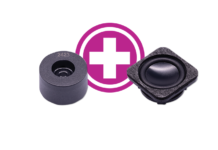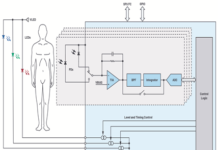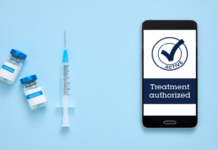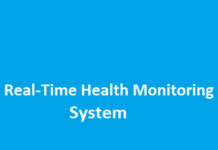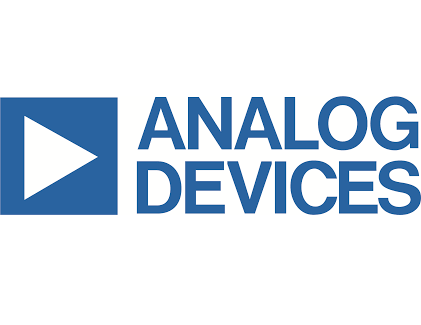
Analog Devices has announced U.S. Food and Drug Administration (FDA) 510(k) clearance and the commercial launch of the Sensinel Cardiopulmonary Management (CPM) System. The compact wearable device is a non-invasive, remote management system that captures cardiopulmonary measurements for chronic disease management such as heart failure. It is the first FDA clearance the company has received in its 59-year history.
“Since our founding, ADI has focused on accelerating breakthroughs that enrich lives through innovative products,” said Patrick O’Doherty, Senior Vice President of Digital Healthcare at ADI. “By combining our wearable vital signs sensing and signal processing technology with cardiologist-inspired algorithms to precisely determine a congestive heart failure patient’s daily state of health, we developed the Sensinel CPM System. This innovative service-based product has the potential to open up several billion dollars of green-field market opportunity for ADI while improving patient care, streamlining clinician workflows, and reducing healthcare cost.”
More than 6 million Americans are living with heart failure today, and this number is estimated to rise to nearly 8 million by 2030.¹ Heart failure currently costs Americans approximately $30 billion each year, and this is expected to rise to almost $70 billion by 2030.¹ Approximately 80% of those costs are due to hospitalization.¹ Other prior solutions measuring similar parameters have shown the ability to reduce hospital admissions. However, oftentimes these solutions are either invasive and/or do not provide sensitive and specific enough data to make a meaningful clinical impact. This data is critical to allow the care team to predict an event early enough in advance to potentially avoid a costly hospitalization for the patient.
The Sensinel CPM System is the next-generation solution for management of cardiopulmonary diseases like heart failure. It is equipped with a set of physiological indicators to help care teams better manage chronic conditions early and remotely, as well as in a precise manner. Patients self-apply ADI’s Sensinel CPM Wearable which they only wear for three to five minutes in a home care setting. The device then captures data about their cardiopulmonary health. This data is automatically uploaded to ADI’s Sensinel CPM Cloud Platform using a cellular link (without the need for a patient-supplied Internet connection) and is then further analyzed using ADI’s Sensinel CPM Intelligent Algorithms in the cloud.
“Early detection of physiological changes is critical for clinicians to prevent a heart failure hospitalization,” said Dr. Sean Pinney, Chief of Cardiology at Mount Sinai Morningside in New York City. “ADI’s Sensinel CPM System is a highly accurate, reproducible, and reliable solution to help improve predictive care.”
“When managing chronic conditions like heart failure, it is critical to adjust treatment early to get the condition under control without the need for hospitalization. Other existing non-invasive solutions are not specific enough to provide the data a clinician needs to be effective for early intervention,” said Dr. Venu Gopinathan, ADI Fellow and Managing Director of Medical Products at ADI. “Our new cardiopulmonary system is designed to fit seamlessly into the workflow of care and perform a variety of physiological measurements that allow care teams to make early clinical decisions, without subjecting them to information overload.”
ADI’s Sensinel CPM System is now commercially available. For more information, visit https://sensinel.analog.com.



